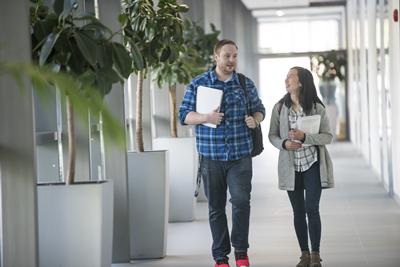Additonal Exam Recommendations (AERs)
Students with a disability, long-term health condition, mental health condition or specific learning difference may be eligible to receive AERs such as extra time, rest breaks and /or smaller exam rooms.

On this page you can find information about the specialist study support that the Student Disability and Inclusion team has to offer, as well as tips and advice on how to prepare for university study.
There are a variety of specialist study support options available for students with specific learning differences (such as dyslexia) and neurodivergent conditions. Find out more about the specialist study support available in the blue boxes below. Some of the following are examples of support are available through recommendation only.
Students with a disability, long-term health condition, mental health condition or specific learning difference may be eligible to receive AERs such as extra time, rest breaks and /or smaller exam rooms.
Specialist study skills support is an opportunity to meet 1:1 with a specialist practitioner for practical support and advice.
A variety of specialist workshops and peer support groups, designed for students who may have a specific learning difference or neurodivergent condition.
A range of study resources, designed for students who may have a specific learning difference or neurodivergent condition.
Run by our University library, here you will find study advice, informative guides and online workshops.
Find out more about the software and equipment available and how to access it remotely and across our university sites.
Find out more about the DSA and whether you may be eligible for additional funding.
Find out some of the ways you can make the transition to online learning that little bit easier.
It is natural to feel anxious about starting university and there are some things that you can do to help prepare yourself.
It is beneficial to obtain as much information as possible. You could try to find out the following:
You could find this information via your Student Office, through Blackboard, through an information pack given to you when you arrive at the University, a course handbook, the Library or your Personal Academic Tutor (PAT).
It is also worth thinking about how you will plan your own study, as organisation is important.
You could:
For further useful resources on how to better prepare yourself for university life, please check out the links below:
The University cannot accept responsibility for external websites.